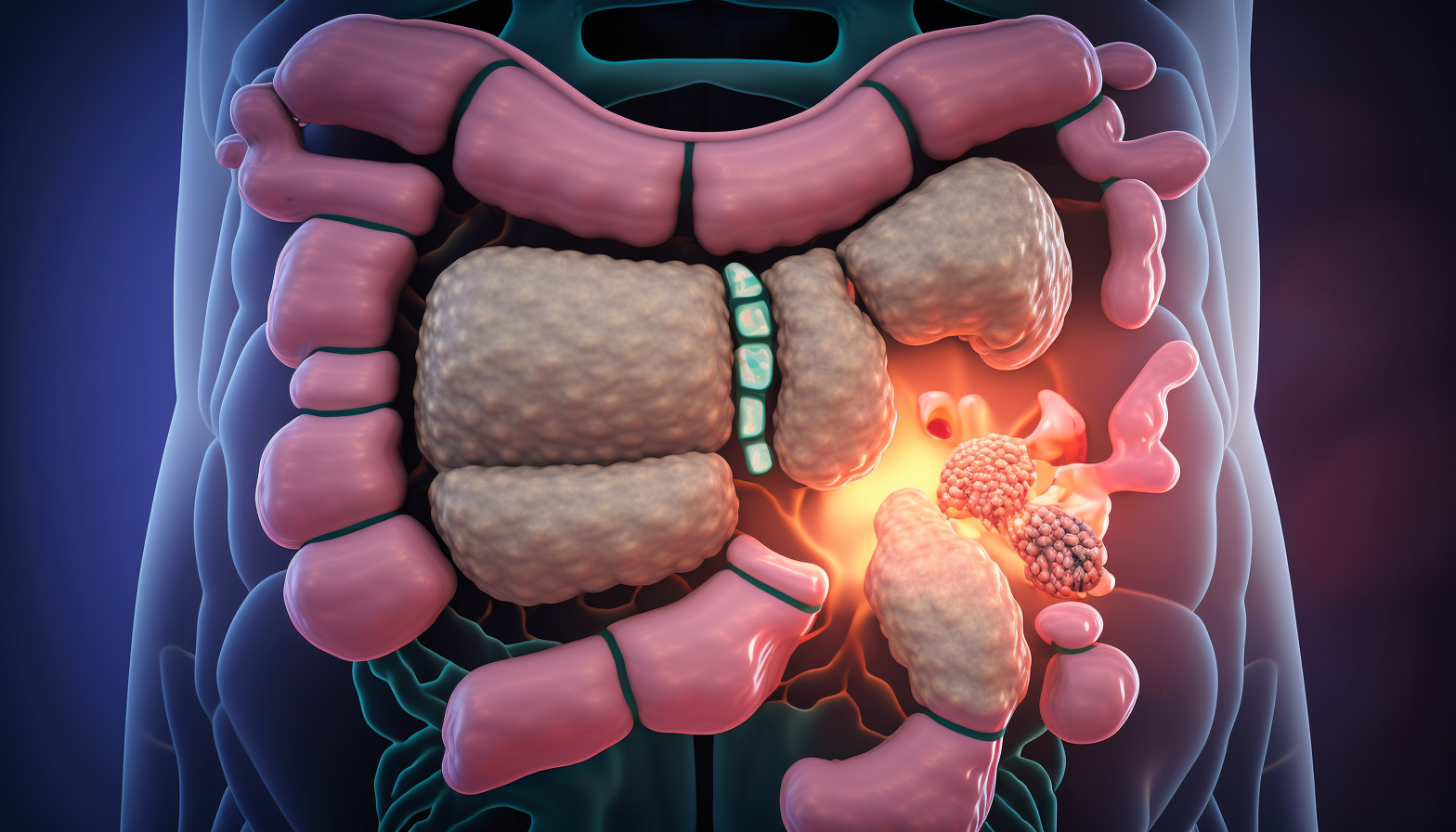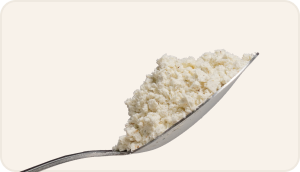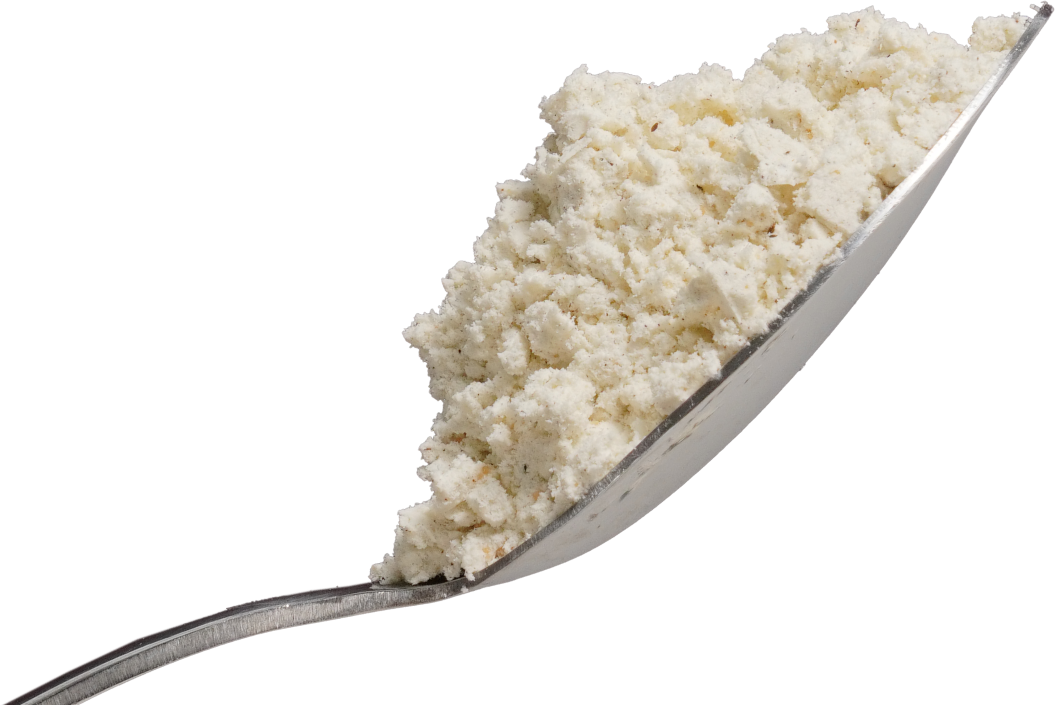GRAB A PACK
Not Sure?
Try Our Sample Pack
What is the best protein powder for IBS?
Introduction
Finding a protein powder that fits your dietary needs, especially when following a low FODMAP diet, can be challenging. With so many options on the market, it can take time to decide which one to choose. To make things even more complicated, it can sometimes be clarified which protein powders are suitable for those with IBS. In this article, we aim to provide some basic information on protein and protein supplementation that is relevant to those with IBS. Our goal is to help you make an informed decision about which protein powder suits you.
It's important to note that with laboratory analysis, predicting any protein powder's FODMAP content is more accessible. As a result, clear answers can only be given by testing each protein powder individually. However, this article will provide some guidelines and things to look out for when purchasing a low-FODMAP protein powder.
Physiological Function of Protein
Protein is a macronutrient that plays a vital role in our diet. It is an essential component of every cell in our bodies and is responsible for building, repairing, and maintaining tissues. When we consume protein, it is broken down into smaller components called amino acids, which are then used by our bodies to carry out various functions. Our bodies continuously turn over and rebuild proteins, making it essential to consume enough protein regularly.
Our bodies do not store excess protein, so any extra protein we consume will be excreted in our urine. This is why consuming just the right amount of protein is essential to meet our body's needs. For most people, this amount can be easily obtained through a balanced diet that includes a variety of protein-rich foods.
Who Needs Protein Supplementation
In general, most people do not need protein supplementation. However, specific populations, such as athletes, older adults, and individuals with certain medical conditions, may benefit from extra protein.
It's important to note that no evidence suggests that individuals with IBS have increased protein requirements or that a low FODMAP diet significantly impacts protein intake. However, it's always best to consult a healthcare professional or a registered dietitian if you have any concerns or questions about your protein needs.

Protein Powders and FODMAPs
Purifying protein to make protein powders can be challenging, and this purification process can also result in high FODMAP content in some protein powders. Therefore, it's essential to be cautious when selecting a protein powder and to stick to food sources of protein whenever possible. If you need to use a protein powder, it's best to consult with a registered dietitian or a healthcare professional to ensure that you choose a suitable option for your dietary needs.
Things to Look Out For When Purchasing Protein Powder
When shopping for protein powder, it's essential to be aware of the potential dangers of certain ingredients. For example, polyols, and sugar alcohols, are often used as sweeteners in protein powders and can be high in FODMAPs. This can cause digestive discomfort for those with IBS following a low FODMAP diet. Some standard polyols include xylitol, maltitol, and isomalt.
Plant-derived proteins, such as pea protein, can also be high in FODMAPs and cause digestive discomfort for those with IBS. To reduce the risk of FODMAPs, opt for protein powders derived from low FODMAP sources, such as egg protein.
Lactose is another ingredient that can be problematic for those with IBS. Lactose is commonly found in whey protein, which is derived from milk. For those with lactose intolerance, lactose-free whey protein may be a better option.
Prebiotics, a type of fiber, are also sometimes added to protein powders and can be high in FODMAPs. Prebiotics are indigestible fibers that act as food for gut bacteria. While they can be beneficial for gut health, they can also cause digestive discomfort for those with IBS who follow a low FODMAP diet.
It's always a good idea to try a small protein powder sample before committing to a full-sized purchase. This can help you determine if the powder agrees with you and contains any ingredients that may trigger your IBS symptoms. Additionally, check the label for the complete ingredient list and any warning statements related to FODMAPs or other elements that may be problematic for you.
Dietary Sources of Protein
When meeting your protein needs, focusing on dietary protein sources is essential. Good sources of protein include:
- Meat: chicken, beef, pork, and turkey
- Fish: salmon, tuna, cod, and haddock
- Eggs: both the whites and the yolks are good sources of protein
- Dairy: milk, yogurt, and cheese
- Tofu: made from soybeans, tofu is a versatile protein source that can be used in a variety of dishes
- Nuts and seeds: almonds, walnuts, pumpkin seeds, and chia seeds are all excellent sources of protein
- Legumes: beans, lentils, and chickpeas are all good protein sources.
To ensure that you are getting a nutritionally adequate diet, it's recommended to include a variety of protein sources and to work with a trained dietitian. A dietitian can help you determine how much protein you need, how to have protein-rich foods, and how to avoid foods that may trigger your IBS symptoms.
Conclusion
In conclusion, it's easier to predict the FODMAP content of protein powders with laboratory analysis. It's essential to remember that not all protein powders are created equal, and it's crucial to be aware of the FODMAP ingredients in your protein powder of choice. While protein powders can be a convenient source of protein, it's vital to remember that dietary protein sources, such as meat, fish, eggs, dairy, tofu, nuts, seeds, and legumes, are the most reliable nutritionally complete sources of protein.
For those with IBS, it's essential to work with a trained dietitian to ensure that you meet your protein needs through a balanced diet that is also low in FODMAPs. A dietitian can provide personalized guidance on which foods and supplements are right for you, considering your dietary needs, preferences, and health status.
If you're looking for a low FODMAP protein powder that ticks all the right boxes, we recommend checking out Happy Gut's egg protein powder. Our protein powder is soft in FODMAPs and gluten-free, soy-free, lactose-free, dairy-free, and sugar alcohol-free. With no artificial colors, sweeteners, or fillers, our protein powder is minimally processed and flavored naturally with cocoa or vanilla. It's also low GI, making it a healthy choice for those with IBS.
In summary, if you're considering a protein powder supplement, stick to food sources for protein intake, check the ingredients for high FODMAP content, and always consult a trained dietitian for personalized guidance. With these tips in mind, you can feel confident finding the perfect protein powder for your IBS symptoms and overall health.
FAQ Section
Similar blogs


















